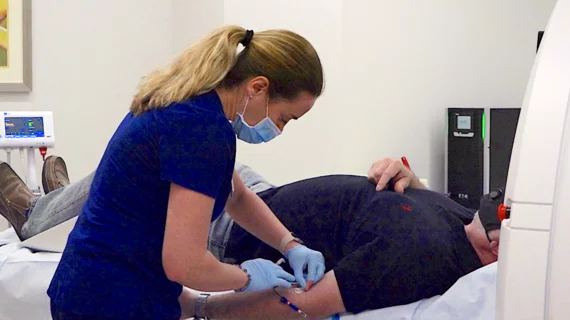Taking shape: New postgraduate degree program for technologists
A university in the Lone Star State is readying a master’s degree program that will prepare grad students to work as radiologic “techs” in all 50 states.
The School of Health Professions at The University of Texas Health Science Center at San Antonio—aka UT Health San Antonio—says the advanced-degree program will launch in fall 2023.
Once off the ground, it will offer graduate-level training for techs-to-be in X-ray, CT and MRI.
Those who complete the curriculum will hold master of science degrees in imaging sciences.
The school suggests these individuals may go on to alleviate technologist shortages that have been straining much if not most of the U.S. healthcare system since the COVID-19 pandemic descended if not before.
An announcement posted by the school Nov. 14 quotes Laura Vasquez, PhD, MS, a UT Health assistant professor who will serve as the program’s director.
Vasquez says the program “will be the only one of its kind in the country—an entry-to-the-profession master’s multi-modality program that provides eligibility for three national certifications by the American Registry of Radiologic Technologists.”
The school says the MS in imaging sciences curriculum is awaiting full approval from the Southern Association of Colleges and Schools Commission on Colleges.
The announcement also quotes UT Health San Antonio radiologist and interim department chair Rajeev Suri, MD, MBA.
“There is a marked need for technologists with this training in the community,” Suri says, adding that “almost all” imaging providers in the San Antonio area are struggling to recruit trained MRI, CT and X-ray technologists.
Vasquez suggests the new program may offer a smart on-ramp not only for aspiring radiologic techs but also for medical and pre-med students.
Most pre-health preparatory programs lack comprehensive imaging education, she explains.
At the same time, job prospects are “particularly strong for imaging technologists who possess certifications in multiple modalities,” Vasquez says. “The new program’s design will enable students to obtain eligibility to sit for three national certification exams in two years—just one-third of the time typically required to earn all three certifications when taken separately.”
Full announcement here.

